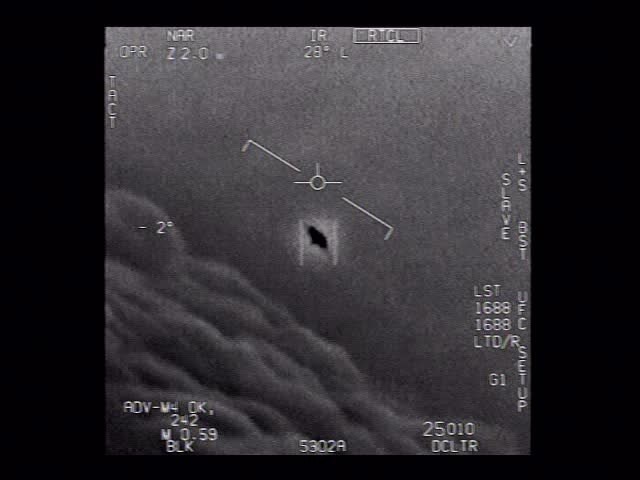Do UFOs Exist?
It’s official. UFOs are real. Or, so the US government says.
Only they are called UAPs. And are not always shaped like flying saucers.
So, after nearly a century of a “UFO” being considered a semi loony myth, some very respected Pentagon, Navy, and US Government officials are coming out and saying this is no urban legend. This is real. As in REAL. Legit.
But what exactly are UFOs? Or UAPs for that matter?
Ah, this part isn’t so simple.
In short, no one really knows.
There are well-documented accounts of their otherworldly capabilities. Iranian Tomcat pilots have observed them travelling at Mach 10 (The Pentagon is currently struggling to achieve Mach 5). When attempting to pursue the UFOs, all radar and tracking instruments in the Iranian planes suddenly failed. One F-14 fighter jet mysteriously exploded, killing its pilot.
The crafts can transition in and out of the atmosphere, and enter the water as well. They can also change direction with an abruptness that would instantly kill any human pilot, due to the insane G-forces this would put on their body. Oh, and they rotate sometimes. No propulsion system has been detected in UFOs, so their method of moving around draws a blank.
Video footage was released of a Super Hornet locking on an object through its radar system. You can hear the pilot exclaim in child-like fascination, as he tracks the bizarre phenomenon.

Various theories abound as to the identity of these unknown ‘things’.
Some are convinced that “extra-terrestrial beings”; or creatures from other planets or solar systems, are visiting us. To some, this is not a theory but a fact.
Still others firmly attest there’s “nothing to see here”. “Everything can be explained by science,” they confidently declare.
A third camp speculates this may be the secret technology of a foreign, perhaps hostile government.
There is even a class of people deemed ufologists, or people who study UFOs. (My spell-checker considers “ufologist” an invalid word though. Hmmm.)
So, what to make of all this?
As a race, we humans feel somewhat uncomfortable just not knowing. Especially in the modern-day, 2021 consciousness, the prevailing feeling is that we know just about everything. And if there’s something we don’t know, well, we’ll find it out soon enough.
To be sure, human knowledge has certainly made great strides. The combined efforts and minds of thousands of researchers and scientists has split the heavens with powerful telescopes, cured disease, brought mankind to the moon and back, connected the world digitally, and is now developing Artificial Intelligence. We have learned about DNA, subatomic particles, and black holes, and have studied quantum mechanics, timespace, and the fourth dimension.
However, abundant knowledge comes along with a built-in risk.
Robert Cialdini discusses in his classic book “Influence” the power of perceived authority to influence; sometimes erroneously. He cites a study where a researcher posing as a doctor prescribed a very wrong dosage to a patient, and the nurse nicely filled the prescription, though her training should have been enough to know it was wrong. Her implicit trust in the doctor’s authority prevented her from using her own judgement, though the results would have been a disaster.
Here too, the advancements of the study of science has awarded it an aura of authority, bordering on infallibility.
Interestingly, the “scientific community” actually has this attitude of blind faith toward itself. “Even if we do not have answers”, scientists and their followers tell themselves, “we surely will soon.”
It’s no secret that as an extension of this attitude, there prevails amongst those circles a certain dismissiveness toward belief in God. “We know everything already, and have no need for God to explain the universe” is the thought pattern. “Besides, there’s no scientific evidence of God’s existence.”
Sadly, this attitude has succeeded in closing many minds to even considering the ultimate truth of the universe.
And since the “experts” think this way, well, by osmosis it carries over to their fans and believers.
The truth about science
Has “science” (which is how the study of science is referred to) in fact never been wrong? Think again.
This, from The Guardian: “Brain power: Scientists at the Institute for Animal Health in Edinburgh secured a £200,000 government grant to find out whether BSE has jumped the “species barrier” from cows into sheep. An inquiry is now under way after it was found that scientists had been mistakenly testing cattle brains instead of sheep brains for five years.”
And this “Piltdown man: In 1913 an ape’s jaw with a canine tooth worn down like a human’s was uncovered at a site near Piltdown. British paleoanthropologists came to accept the idea that the fossil remains belonged to a single creature who had a human cranium and an ape’s jaw – offering the missing link between apes and humans in the evolutionary chain. In 1953, Piltdown ‘man’ was exposed as a forgery. The skull was modern and the teeth on the ape’s jaw had been filed down.”
Some other shining lights include eugenics, phrenology, the planet Vulcan (“the planet that wasn’t”), and the 1996 “proof” of life on Mars.
So, whatever your favorite theory on the identity of UFOs is, my hope is that the official recognition of the phenomenon will evoke in the public consciousness an attitude of just a bit more humility. Just a bit more awareness that our intelligence, however impressive, still has its limits. We may know a lot, but we don’t know everything.
Hopefully, this will lower society’s defenses, and open the public’s minds just a crack to embracing the Ultimate Knowledge; the knowledge of God.
Rabbi Pinchos Fried


